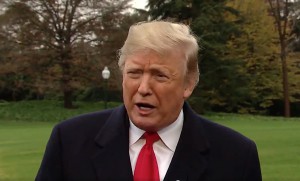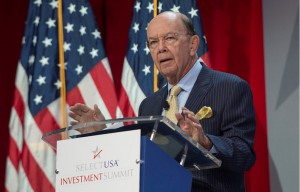
President Donald Trump will soon have to decide if using punitive tariffs makes sense in negotiations.
Just days after proclaiming a national emergency that would take $8 billion from the U.S. budget to construct additional border wall between the U.S. and Mexico, President Donald Trump will be faced with another massive decision involving foreign countries.
The U.S. Commerce Department is expected to tell Trump on Sunday whether or not foreign vehicle imports constitute a national safety risk and offer suggestions on how to deal with the situation.
He’ll have 90 days to act on the Commerce Department’s recommendation. However, President Trump already has a plan in place for the issue: a 25% tariff on vehicles imported into the country.
The proposed 25% import tariffs on cars by the United States could cut German car exports to the U.S. by 50% in the long-term and heavily affect exports to other countries, a study by the German Ifo institute showed on Friday.
(China suspends punitive tariffs during trade negotiations. Click Here for the story.)
“These tariffs would cut total car exports from Germany by 7.7%, which would amount to 18.4 billion euros,” Gabriel Felbermayr, foreign trade expert at Ifo, said in a statement.

Commerce Secretary Wilbur Ross is leading the Section 232 investigation into whether or not imported automobiles and parts represent a threat to the United States.
It’s unlikely he’ll act immediately on the findings as the U.S. and China are in the midst of trade talks that Trump described during Friday’s press conference announcing the national emergency plan as going “good.” Slapping a 25% tariff on everyone in the middle of those negotiations would be counter-productive.
Additionally, the idea has faced opposition from Congress, automakers and foreign governments —some, like Germany, have threatened to give as good as they get on this issue.
(Click Here to see the Trump administration walk back its tariff claims.)
Automakers are up in arms about the proposal because of what it will do to auto sales. A variety of automakers all noted prices of new vehicles would rise significantly if this happened. Some estimates revealed prices would rise as much as $7,000 per vehicle, while others noted it would jump $83 billion annually and eliminate thousands of jobs.
Further, there is no evidence auto imports actually pose a national security risk. Canada and Mexico each won duty-free access to 2.6 million vehicles as part of a new North American free trade deal even if the administration moves ahead with the tariffs, Autoblog.com points out.
However, Trump appears to using the potential tariffs in a game of trade chicken on with countries across the Atlantic and Pacific oceans. Once talks with China took off, Trump agreed to cut the 40% tariff he imposed back to the standard 15%. Many Republicans oppose tariffs, backing legislation restricting the president’s ability to impose tariffs based on national security.
(White House tells automakers China tariffs coming down. Click Here for the story.)
“Raising tariffs on cars and parts would be a huge tax on consumers who buy or service their cars, whether they are imported or domestically produced,” said Senator Charles Grassley, a Republican who chairs the Finance Committee, said Thursday new auto tariffs would damage the U.S. economy.
